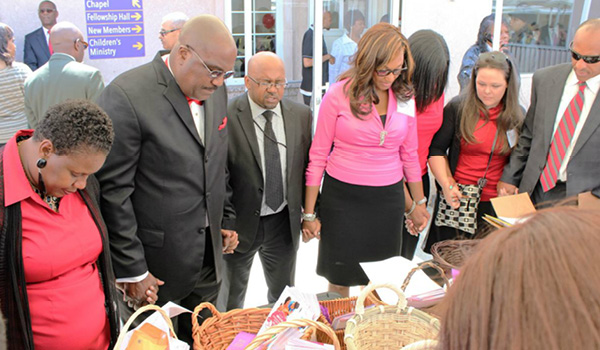
Navigating complexities of end-of-life care
Outside an Oakland, California church, traffic rumbles down a busy street. Inside, the chaos of the city disappears, and an intent team of African-American pastors, volunteers and care navigators works to find ways to meet the many needs of those with serious illness being cared for by their family and friends.
Pastors serving five African-American churches in suburban areas appreciate the often crushing burden experienced by the daughters and sons, the spouses and parents, who often struggle to provide care at home for those they love. They created the Alameda County Care Alliance (ACCA), which in conjunction with the national non-profit Coalition to Transform Advanced Care, recruits, trains and oversees the work of church-based care navigators to support families.
“We are a consortium of faith-based churches partnering with health systems,” explains Cynthia Carter Perrilliat, ACCA’s executive director. “In this process, we looked for partners to bring rigorous understanding and evidence-based support, so we can present data that demonstrates this program is working.”
In the first year of their efforts, almost 500 Oakland residents have been supported by care navigators, who provide information, contacts, referrals and hope. The Betty Irene Moore School of Nursing at UC Davis partners with this faith-based effort to provide care when cure is no longer possible.
“We are part of the team invited to the table to think about how we grow this,” says Jill Joseph, School of Nursing associate dean for research. “So that families can understand what they want, say what they want and get what they want when dealing with the end of life.”
Multiple faculty collaborate with the pastors and leaders of ACCA in multiple ways. Associate Professor Janice Bell designed ways to evaluate the activities of the care navigators. That information is brought to health care organizations and payers to demonstrate the value of the program, and provide the basis for requesting funding that is essential if the program is to thrive. It also improves the program, identifying areas where further effort and training are needed.
“Ensuring that a person with advanced illness has access to care and that the care aligns with his or her wishes is critical to improving health care experiences and quality of life,” Bell explains. “Research driven by the community and led by members within that community offers great promise for replication and sustainability of the intervention and holds promise for building trust between the community and health partners.”
In addition, Katherine Kim, an assistant professor and School of Nursing alumna, leads a team providing training to care navigators in methods such as motivational interviewing that can help patients and those who care for them take charge of their care.
“Care navigators don’t have specialized training in health care or counseling. They are caring, trusted people who want to help their community,” Kim explains. “These counseling techniques enable them to uncover a person’s wishes through conversation and empower the people and families the navigators serve.”
This School of Nursing team supports the alliance leadership as they envision a future where people, however ill, and families, however burdened, receive the support they need and the dignity they deserve.

